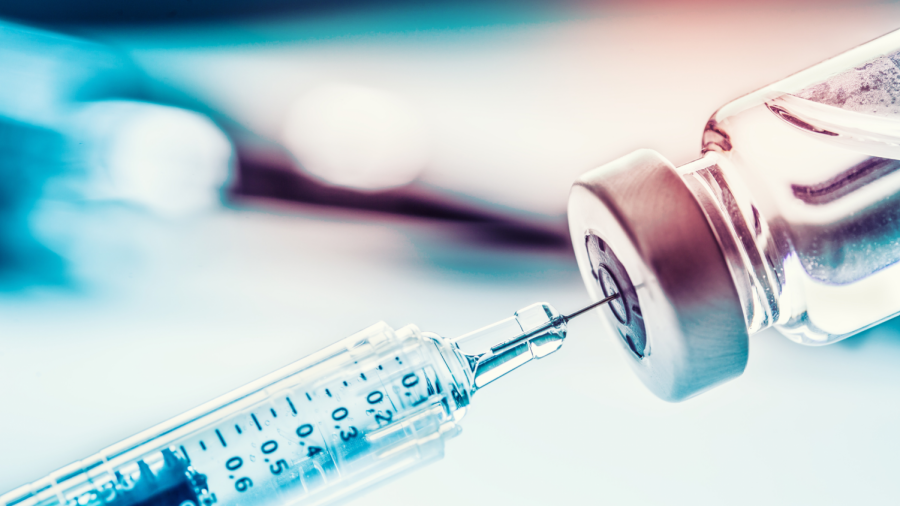OPINION: Don’t let misinformation cloud your judgement about whether to get the COVID-19 vaccine
You should base personal decisions using fact not fiction
December 10, 2020
While the Pfizer and Moderna COVID-19 vaccine candidates await approval in the U.S., Englanders have officially begun to receive their Pfizer vaccination. In a study conducted by Pew research in September, only 51% of people said they’d take a COVID-19 vaccine while Dr. Anthony Fauci has echoed that we need at least 75%-85% of the population to take a vaccine to reach herd immunity.
With that being said, around the world and specifically in the U.S., there seems to be a lot of skepticism and misinformation being spread on TV and on social media and I wanted to clear things up about vaccines in general and specifically the COVID-19 vaccine candidates.
Everyone is entitled to their own opinion about vaccinations, but whether or not you take the COVID-19 vaccine should be based on facts and not misinformation.
It is important to note that I am not a medical expert and I can’t speak to how a vaccine will affect you in the days after you get it. What I do know is that the science speaks for itself and so far there have been no serious safety concerns noted in the two primary vaccine candidates that could become available in the coming weeks. You could experience symptoms of a mild COVID-19 case or you could experience nothing at all — the bodily response varies.
By definition, a vaccine is a biological preparation that provides active acquired immunity to a particular infectious disease. Remember all those years you went to public school? Yeah, you had to take numerous vaccines in order to keep other kids safe.
In California, kids entering kindergarten are required to have five doses of DPT vaccine, four doses of the Polio vaccine, two doses of the MMR vaccine, three doses of the Hepatitis B vaccine and one dose of the Varicella vaccine. Then before the seventh grade you are required to get one dose of the Tdap vaccine and two more doses of the MMR vaccine. It was vaccines like these that kept outbreaks from happening within schools and in the general population, which is one of the main goals of a vaccine.
To be quite honest, I never understood the negativity that surrounded vaccines and the anti-vaxxer movement. For years, vaccines have been a key cog in our medical world that have helped us eradicate diseases such as smallpox.
Here I describe a brief overview of how the Pfizer/BioNTech or Moderna mRNA vaccines work. Taking a vaccine is one’s personal choice, and I hope this video can help someone make that decision rooted in science. pic.twitter.com/ZjFH0DH5ca
— Rob Swanda (@ScientistSwanda) December 7, 2020
The COVID-19 vaccine is supposed to induce your body to prepare to fight against the infection if you were to be exposed to the virus. A vaccine typically contains an agent that resembles a disease-causing microorganism and is often made from weakened or killed forms of the microbe, its toxins or one of its surface proteins. The COVID-19 vaccine is the first of its kind as it is a mRNA vaccine.
RELATED: Prepare for a 6-week stay-at-home order, Sacramento County Health officials say
I know that the COVID-19 vaccine being developed so quickly scares some people, but there’s a reason for this rapidity. Due to the urgency of the pandemic, as well as the fact that scientists couldn’t figure out everything about the virus, the COVID-19 vaccine was actually made using past research on SARS and MERS. This helped scientists identify that creating a vaccine that will target the spike protein of COVID-19 could possibly work because the protein wouldn’t be able to bind itself to human cells and reproduce.
As I mentioned before, most of the vaccines you may have gotten in your life contain a weakened or inactivated germ into your body, but this isn’t the case with the COVID-19 vaccine. The vaccine is an mRNA vaccine, which means that instead of introducing an agent into your body, it teaches our bodies to make a protein that will trigger an immune response to COVID-19. Now contrary to some belief, this does NOT mean that by receiving the COVID-19 vaccine your DNA will be altered in any way and also does NOT mean that a microchip will be placed inside your body (if this happened you’d die pretty quickly).
Vaccine: Longterm side effects
Over 35000 people have received the Pfizer or Moderna vaccine and are free of severe side effects after 1-2 months
Over 99% side effects typically show up within this duration
Rest is largely ignorance or fear mongering
— Faheem Younus, MD (@FaheemYounus) December 8, 2020
Some will also try to make the argument that it shouldn’t be possible to make a vaccine in less than a year while not finding cures for certain diseases such as cancer, Alzheimer’s, Parkinson’s and ALS. But, that is faulty reasoning because people forget that COVID-19 is a contagious virus much like the flu and can be protected against with vaccines and medications that have a higher success rate, while diseases like cancer require complex treatment and it has been difficult for scientists to find a permanent solution through research.
We have been in the midst of a pandemic, so that means that it was imperative that the government go as fast as they could when developing these vaccines. Please note though that the scientists didn’t rush through the process or falsify data. The Pfizer and Biontech vaccine was shown to be 95% effective in preventing COVID-19 28 days after the first dose after analyzing immune response from over 43,000 participants. The FDA also announced that it considers the Pfizer vaccine to be safe and effective after just one dose, which is a huge step towards it being granted emergency authorization approval.
Meanwhile, the Moderna vaccine included 30,000 participants and was shown to have a 94.1% efficiency while also having a 100% efficacy in preventing serious cases of COVID-19. No serious safety concerns were identified for either vaccine, but it is important to note that people can experience symptoms such as a fever or headache after being vaccinated — however, this doesn’t impact the efficacy of the vaccine.
We’ve blown our chance at herd immunity, but the COVID-19 vaccines offer us a light at the end of the tunnel after almost a year of hell. I have no doubt these vaccines will help save lives over the next year.
Now, the choice is yours. Like I stated in the beginning, whether or not you take one of the COVID-19 vaccines will be up to you, but it is important that you understand the misinformation that surrounds them. Just remember to do your own scientific research because that will help you make an informed decision rather than going off what your friends, family or other random people say. After examining the scientific data that has come out so far, I can say with confidence that I will take the COVID-19 vaccine as long as it is continued to be deemed safe by our nation’s leading scientists.




































































































































